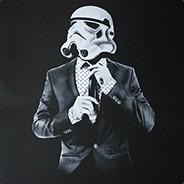Найдите в тексте 2 английские эквиваленты следующих слов и словосочетаний и запишите.
Сложная сеть электронных цепей; управлять (приводить в действие) переключателями; возможные состояния; хранить (запоминать) числа; обрабатывать символы; посредством ввода сигналов; включать; выключать; размагничивать сердечники; обработка информации; информация в виде команд; символы, называемые данными; выполнять математические операции; выдавать результаты; обеспечивать необходимую
информацию; иметь замечательные возможности; основные свойства; сложение, вычитание, деление, умножение; возведение в степень; средства для общения с пользователем; устройство ввода; дисковод; считывать информацию; вывод информации; катодно-лучевая трубка; принимать решения; выполнять тысячи логических операций; без устали; находить решение задачи; значительно меньший промежуток времени; человек; нудная рутинная работа; в соответствии с введенной программой; вырабатывать свои суждения; возможности ограничены программой, заложенной в него человеком; дать требуемую информацию; электрические импульсы; со скоростью света; мгновенно производить огромное количество математических операций; человеку может не хватить всей жизни, чтобы закончить работу.
Text 2. WHAT IS A COMPUTER?
A computer is a machine with an intricate network of electronic circuits that operate switches or magnetize tiny metal cores. The switches, like the cores, are capable of being in one or two possible states, that is, on or off; magnetized or demagnetized. The machine is capable of storing and manipulating numbers, letters, and characters (symbols).
The basic idea of a computer is that we can make the machine do what we want by inputting signals that turn certain switches on and turn others off, or magnetize or do not magnetize the cores.
The basic job of computers is processing of information. For this reason computers can be defined as devices which accept information in the form of instructions, called a program, and characters, called data, perform mathematical and / or logical operations on the information, and then supply results of these operations. The program, or part of it, which tells the computers what to do, and the data, which provide the information needed to solve the problem, are kept inside the computer in a place called memory.
It is considered that computers have many remarkable powers. However, most computers, whether large or small, have three basic capabilities.
First, computers have circuits for performing arithmetic operations, such as: addition, subtraction, division, multiplication, and exponentiation. Second, computers have a means of communicating with the user. After all, if we couldn’t feed information in and get results back, these machines wouldn’t be of much use. Some of the most common methods of inputting information are to use terminals, diskettes, disks, and magnetic tapes.
The computer’s input device (a disk drive or tape drive) reads the information
into the computer. For outputting information two common devices used are: a printer, printing the new information on paper, and a cathoderay- tube display, which shows the results on a TV-like screen. Third, computers have circuits which can make decisions. The kinds of decisions which computer circuits can make are not of the type: “Who would win the war between two countries?” or “Who is the richest person in the world?” Unfortunately, the computer can only decide three things, namely: Is one number less than another? Are two numbers equal? and, Is one number greater than another?
A computer can solve a series of problems and make thousands of logical decisions without becoming tired. It can find the solution to a problem in a fraction of the time it takes a human being to do the job. A computer can replace people in dull, routine tasks, but it works according to the instructions given to it. There are times when a computer seems to operate like a mechanical “brain,” but its achievements are limited by the minds of human beings. A computer cannot do anything unless a person tells it what to do and gives it the necessary information; but because electric pulses can move at the speed of light, a computer can carry out great numbers of arithmetic-logical operations almost instantaneously. A person can do the same, but in many cases that person would be dead long before
the job was finished.
113
452
Ответы на вопрос:
1. does 2. some 3. sister 4. we 5. on 6. past 7. morning 8. postman 9. doing 10. any 11. jar 12. shorts 13. dentist 14. go
Объяснение:
Реши свою проблему, спроси otvet5GPT
-
Быстро
Мгновенный ответ на твой вопрос -
Точно
Бот обладает знаниями во всех сферах -
Бесплатно
Задай вопрос и получи ответ бесплатно

Популярно: Английский язык
-
Ех2.read the text again.match questions 1-3with three paragraphs a-d.1.what...
 Гогенцоллерн06.02.2022 20:50
Гогенцоллерн06.02.2022 20:50 -
Make a new sentence using the verb is brackets....
 Nyry21.11.2021 15:47
Nyry21.11.2021 15:47 -
1. раскрой скобки и вставь правильную форму глагола: 1) my sister ….. (clean)...
 383726825.05.2021 14:21
383726825.05.2021 14:21 -
Нужна ! заранее огромное . нужно вот эти 5 предложений переписать в пассиве...
 malinkarinka59909.03.2023 11:04
malinkarinka59909.03.2023 11:04 -
нужен рассказ по английскому Description of a peasson,...
 NastyaK2704.12.2022 12:59
NastyaK2704.12.2022 12:59 -
Ребят кто знает какие вопросы будут в Соче? 5 класс английский язык 2 четверть,...
 hitechnic66985701.01.2021 05:41
hitechnic66985701.01.2021 05:41 -
Как переводится garden?...
 fedarmo24.02.2022 23:36
fedarmo24.02.2022 23:36 -
Виконайте тести на фото...
 ника1108200122.06.2022 19:42
ника1108200122.06.2022 19:42 -
Поставьте предложения во множественное число. произведите все необходимые...
 45df4521.06.2021 23:10
45df4521.06.2021 23:10 -
Описать картины, какая именно без разницы...
 0224n21.02.2020 01:50
0224n21.02.2020 01:50

Есть вопросы?
-
Как otvet5GPT работает?
otvet5GPT использует большую языковую модель вместе с базой данных GPT для обеспечения высококачественных образовательных результатов. otvet5GPT действует как доступный академический ресурс вне класса. -
Сколько это стоит?
Проект находиться на стадии тестирования и все услуги бесплатны. -
Могу ли я использовать otvet5GPT в школе?
Конечно! Нейросеть может помочь вам делать конспекты лекций, придумывать идеи в классе и многое другое! -
В чем отличия от ChatGPT?
otvet5GPT черпает академические источники из собственной базы данных и предназначен специально для студентов. otvet5GPT также адаптируется к вашему стилю письма, предоставляя ряд образовательных инструментов, предназначенных для улучшения обучения.
